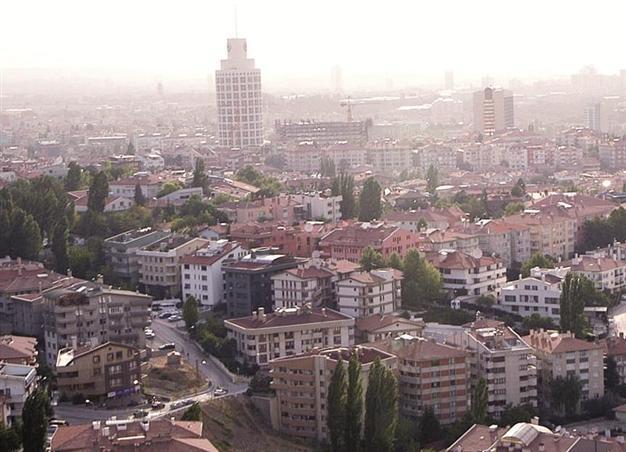Turkey’s state subsidies center on a few cities, new growth system needed: Association
ISTANBUL
 Turkey’s state subsidies and economic incentives are centered on a few cities and the existing system does not cover less developed cities, the Turkish Young Business Association (TÜGİAD) said in written statement Feb. 12.
Turkey’s state subsidies and economic incentives are centered on a few cities and the existing system does not cover less developed cities, the Turkish Young Business Association (TÜGİAD) said in written statement Feb. 12.The association said Istanbul was the most preferred city for investment in 2014 with a share of 12.8 percent in the number of investment incentive documents. The northwestern city of Bursa followed Istanbul with 5.4 percent, followed by the capital Ankara with 4.1 percent and İzmir with 3.6 percent, according to data compiled by TÜGİAD from Economy Ministry figures.
Istanbul was also number one in terms of the volume of investment with a 14 percent of share in the total, followed by İzmir with 6.5 percent, Ankara with 5.9 percent, and both Manisa and Antalya with 5 percent.
The lowest investment incentives in 2014 were offered in the Black Sea province of Bayburt, and the eastern provinces of Ardahan, Tunceli and Hakkari.
“One of Turkey’s deepest problems is the income inequality between regions. While nothing is invested in some cities, record high investments are made in others. This is not good for us. The existing investment incentive system, which has continued since 2009, is not creating attraction for investments in several cities like Ardahan, Tunceli and Bayburt, despite many attractive points they offer. For such provinces, a new economic support and growth model based on a flourishing private sector should be developed and adopted,” said TÜGİAD head Ali Yücelen.
Small and medium-sized enterprises (SEMs) play a great role in the economy, Yücelen stressed.
“If we want to narrow the regional welfare gap, our biggest leverage will be SMEs. In this vein, Turkey needs to take steps to make them more effective and productive,” he added.
The TÜGİAD head noted that the state has very detailed information about the cities and the economy.
“It is important to assess this information. We do not have a healthy industry inventory, and unless we measure it we will not be able to manage it,” Yücelen said.
Most investments in Turkey in 2014 were made in the energy, services, manufacturing, mining and agricultural sectors, according to the Economy Ministry data.
















